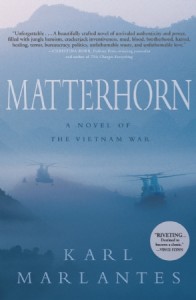Publishing Talks: David Wilk interviews Morgan Entrekin
February 26, 2010 by David
Filed under PublishingTalks
 In this series of interviews, called Publishing Talks, I am talking to book industry professionals who have varying perspectives and thoughts about the future of publishing, books, and culture. This is a period of disruption and change for all media businesses.
Publishing has been a crucial part of human culture for as long as people have been writing and reading.
In this series of interviews, called Publishing Talks, I am talking to book industry professionals who have varying perspectives and thoughts about the future of publishing, books, and culture. This is a period of disruption and change for all media businesses.
Publishing has been a crucial part of human culture for as long as people have been writing and reading.
How will publishing evolve as our culture is affected by technology, climate change, population density, and the ebb and flow of civilization and its economics? Publishing Talks interviews help us understand the outlines of what is happening, and how we might ourselves interact with and influence the future of publishing as it unfolds. Publishing Talks interviews give people in the book business a chance to talk about ideas and concerns in a public forum that are often only talked about “around the water cooler,” at industry conventions and events, and in emails between friends.
I hope that Publishing Talks interviews will give people inside and outside the book industry a chance to hear about some of the thoughts, ideas and concepts that are currently being discussed by engaged individuals within the industry.
Morgan Entrekin is the iconic publisher of Grove Atlantic, one of the most prominent and successful midsized literary publishers of the past couple of decades. He has all the chops of a “traditional” book publisher: a great commitment to authors and their texts, a belief in the enduring power of a great backlist. But he is also an astute marketer who understands readers and the necessity for publishers to pay attention to what readers want and need.
Entrekin grew up in Nashville, graduated from Stanford in 1977, started in the business at Delacorte Press, working under the late, great Seymour Lawrence and editing the likes of Jayne Anne Phillips, Richard Brautigan, and Kurt Vonnegut. In 1982 he moved over to Simon & Schuster, where he made his name by championing, acquiring and editing Bret Easton Ellis’s breakout novel Less Than Zero. In 1984 he created his own imprint within Atlantic Monthly Press, Morgan Entrekin Books and a few years later he bought Atlantic outright; two years after that, he purchased Grove Press, which featured one of the great backlists that included D.H. Lawrence, Henry Miller, and Samuel Beckett.
Entrekin’s gained well deserved fame and credit for publishing Charles Frazier’s Cold Mountain in 1995. In the course of promoting the novel, Entrekin is credited with more or less creating the pre-publication tour, sending Frazier to meet book buyers in various cities before the book landed in stores. It paid off: Cold Mountain was a huge success, sold over 1.5 million copies, won the National Book Award, and was made into a big-budget Hollywood movie. Other notable Grove/Atlantic titles include Mark Bowden’s Black Hawk Down, Candace Bushnell’s Sex and the City, as well as the works of Sherman Alexie and P.J. O’Rourke.
We had a terrific talk, covering a wide range of interesting topics, from the current state of the book business, to the kinds of things that Entrekin is doing at Grove/Atlantic to stay current. Morgan is thoughtful, intelligent and incisive on every topic he discusses; he cares deeply about the books he publishes, backlist and frontlist titles alike, and is clearly still motivated and excited by the same beliefs and ideas that brought him into the book business in the first place. Anyone interested in understanding how a publisher can navigate the changing landscape of the business will benefit from listening to what he has to say in this interview.
Podcast: Play in new window | Download
Karl Marlantes: Matterhorn: A Novel of the Vietnam War
April 10, 2010 by David
Filed under Fiction, WritersCast
 978-0802119285 – Hardcover – Grove/Atlantic – $24.95 (e-book edition available).
978-0802119285 – Hardcover – Grove/Atlantic – $24.95 (e-book edition available).
When I started reading books and interviewing authors for Writerscast, I made a commitment to only interviewing writers whose books I liked. In the year since, I’ve started quite a few I could not finish, but have read and liked a good fifty books of all different kinds. Several of them kept me up well past my already late bedtime, which is always a great feeling, even if it does make me tired.
I have to say that Matterhorn: A Novel of the Vietnam War, at 590 pages, kept me up later and longer than any book I have read in the past year. It’s just impossible to put down. Karl Marlantes takes you right into the psyche of a young, smart, scared Marine lieutenant, landing in ‘Nam for his first tour of duty early in the war, and keeps you with him and the soldiers he fights and dies with all the way through to the end of the book. There’s no doubt that the war in Vietnam was an unforgettable, painful, and highly charged experience for the men and women who were there.
Most of us who are old enough either to have been there, or to have lived through the war at home, have had difficulty finding a voice for what happened, and there has been precious little fiction to come out of that period in America’s history that has resonated as great art. I believe this book qualifies as such a thing. Marlantes has captured so much of what America was in the mid-to-late sixties, it becomes possible to inhabit that world, and most importantly, to understand it. Fiction transforms experience into transcendent understanding; a greater truth emerges. Through the terrible grind of war, the intensity of combat, individual heroism and pain, Marlantes has created a great work of art that celebrates the human spirit, a brilliantly glowing prism of suffering and soul.
Karl Marlantes went to Yale, was a Rhodes Scholar, and like his main character, was a Marine infantry officer in Vietnam where he was awarded the Navy Cross, the Bronze Star, two Navy Commendation Medals for valor, two Purple Hearts, and ten air medals. He wrote Matterhorn over a long period of time – 35 years at least – in many drafts and many forms. At various times, he attempted to have the novel published commercially, but it was never “the right time” for any publisher, until the tiny El Leon Literary Arts agreed to publish earlier this year. When they submitted the novel to Barnes & Noble’s Discover New Authors series, and the book was read by that company’s fiction buyer, Sessalee Hensley, who knew that this book would need a larger publisher to help bring it to the large audience it deserves.
Morgan Entrekin (whom I interviewed for Publishing Talks a few weeks ago and who told me about this book when I talked to him) brilliantly chose to put the full resources of Grove/Atlantic behind this book, and I believe it will end up being recognized as one of the great war novels America has produced. In our conversation, Karl Marlantes tells the story of his life and how this book came to be written, what it took to write it, and what it means for him now that it has been published. He is a terrific writer, and one who well deserves the accolades he and his novel are receiving now.
Podcast: Play in new window | Download
